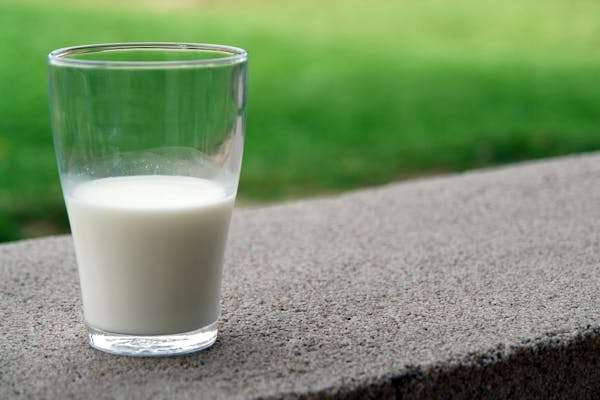Optimizing milk production is a key concern for breastfeeding mothers, and a balanced diet plays a crucial role in achieving this goal. Understanding the significance of a well-planned diet for breastfeeding mothers to increase milk can significantly impact both the quantity and quality of breast milk produced.
Mothers can assist their body’s innate ability to nurture their infants by emphasizing nutrient-rich diets and sufficient hydration. This article examines crucial nutritional advice and techniques that support breastfeeding mothers’ general health as well as their ability to produce more milk.
Including these nutritional insights can significantly improve your nursing experience, whether you’re a new mother trying to increase your milk supply or hoping to maintain a good lactation cycle.
Key Nutrients for Milk Production:
During breastfeeding, certain nutrients play a critical role in supporting milk production and ensuring the health of both the mother and baby. A well-rounded diet for breastfeeding mothers to increase milk should focus on the following key nutrients:

- Protein: Essential for tissue repair and growth, protein-rich foods like lean meats, poultry, fish, eggs, dairy products, legumes, and nuts help support milk production. Adequate protein intake ensures that the body has enough amino acids to build and repair milk-producing cells.
- Calcium: Crucial for bone health and muscle function, calcium is also vital during lactation to maintain maternal bone density and support the mineral content of breast milk. Good sources include dairy products, fortified plant-based milks, leafy greens (like kale and spinach), and calcium-set tofu.
- Iron: Needed for red blood cell production and oxygen transport, iron supports energy levels and overall health. Breastfeeding mothers may need more iron than during pregnancy due to blood loss during childbirth and increased demands from milk production. Iron-rich foods include lean meats, poultry, fish, fortified cereals, beans, and dark leafy greens.
- Omega-3 Fatty Acids: Found in fatty fish (like salmon and sardines), flaxseeds, chia seeds, and walnuts, omega-3s are crucial for brain development in infants and may also help support maternal mood and cognitive function.
- Vitamin D: Essential for bone health and immune function, vitamin D also supports the absorption of calcium. Breastfeeding mothers should ensure adequate exposure to sunlight or consider supplements, as few foods naturally contain vitamin D.
- B Vitamins: Important for energy production and metabolism, B vitamins (especially B6 and B12) are crucial during lactation. Sources include whole grains, meat, poultry, fish, eggs, dairy products, and fortified cereals.
By prioritizing these nutrient-rich foods in their daily diet, breastfeeding mothers can support optimal milk production and ensure both their own and their baby’s nutritional needs are met.
Specific Foods to Include:
When focusing on a diet for breastfeeding mothers to increase milk, certain foods are particularly beneficial for supporting lactation and enhancing milk supply. Here are some specific foods to include:

- Oats: Known for their galactagogue properties, oats can help stimulate milk production. They are versatile and can be enjoyed as oatmeal, granola, or added to smoothies.
- Leafy Greens: Rich in vitamins and minerals, leafy greens like spinach, kale, and collard greens provide essential nutrients such as calcium and iron, which are important for both mother and baby.
- Fenugreek: Often used as an herbal supplement, fenugreek seeds, and leaves are believed to stimulate milk production. They can be consumed in various forms, such as tea, or added to dishes.
- Salmon: A great source of omega-3 fatty acids, salmon supports brain development in infants and may also help boost maternal mood and cognitive function.
- Garlic: Known for its lactogenic properties, garlic can enhance the flavor of dishes while potentially increasing milk supply.
- Nuts and Seeds: Rich in protein, healthy fats, and essential nutrients like calcium and iron, nuts (such as almonds) and seeds (like flaxseeds and sesame seeds) are excellent choices for breastfeeding mothers.
- Water and Herbal Teas: Staying hydrated is crucial for milk production. Drinking plenty of water and herbal teas, such as fennel or nettle tea, can support hydration and lactation.
Incorporating these nutrient-dense foods into a balanced diet can help breastfeeding mothers maintain adequate milk supply while ensuring they meet their own nutritional needs. It’s important to consult with a healthcare provider or lactation consultant for personalized guidance on diet and breastfeeding.
Hydration and Milk Supply:

Breast milk is about 87% water, making proper hydration crucial for milk production. When you’re dehydrated, your body prioritizes its own needs, potentially leading to a decrease in milk volume.
Here’s why staying hydrated is essential for breastfeeding success:
- Milk production: Water is a key component of breast milk. Adequate fluid intake ensures your body has the resources to produce enough milk for your baby.
- Blood volume: Breastfeeding increases blood volume. Proper hydration helps maintain this increased volume, ensuring efficient delivery of nutrients to your baby through breast milk.
- Overall health: Dehydration can lead to fatigue, headaches, and constipation, all of which can impact your breastfeeding experience.
How much water should you drink?
There’s no one-size-fits-all answer. However, aiming for eight glasses of water daily is a good starting point. Listen to your body’s thirst cues and adjust your intake accordingly. Here are some additional tips:
- Carry a reusable water bottle and sip throughout the day.
- Choose water over sugary drinks.
- Include water-rich fruits and vegetables in your diet.
- If you’re feeling thirsty, you’re already slightly dehydrated. Aim to drink before thirst sets in.
Diet for Breastfeeding Mothers to Increase Milk Supply
While a well-balanced diet is essential for milk production, some mothers may want to focus on elements that may support increased supply. Here’s how hydration fits in:
- Hydration: This is the single most important dietary factor for milk production. Beverages like water, herbal teas (without caffeine), and even milk itself all contribute to your fluid intake.
Remember, breastfeeding is a marathon, not a sprint. By staying hydrated, you’re supporting your own health and well-being, while ensuring your baby receives the best possible nourishment.
Meal Planning Tips:
Effective meal planning is essential for breastfeeding mothers aiming to optimize milk production through a diet for breastfeeding mothers to increase milk. Here are key tips to consider:
- Balanced Nutrition: Plan meals that include a variety of nutrient-rich foods, such as lean proteins, whole grains, fruits, vegetables, and dairy or dairy alternatives. Each meal should ideally contain sources of protein, carbohydrates, healthy fats, vitamins, and minerals essential for both mother and baby.
- Frequency of Meals: Aim for regular meals and snacks throughout the day to maintain energy levels and support milk production. Small, frequent meals can help prevent dips in blood sugar levels, which can affect milk supply.
- Include Lactogenic Foods: Incorporate foods known to promote lactation, such as oats, leafy greens, fenugreek, and nuts. These foods can help stimulate milk production and support overall maternal health.
- Hydration Strategy: Plan to drink plenty of water throughout the day. Consider keeping a water bottle handy and drinking fluids during breastfeeding sessions to stay adequately hydrated.
- Meal Prep and Convenience: Prepare breastfeeding-friendly meals and snacks in advance to save time and ensure nutritious choices are readily available. This can include pre-cut fruits and vegetables, overnight oats, or homemade lactation cookies.
- Variety and Enjoyment: Explore different recipes and flavors to keep meals interesting and enjoyable. Incorporate herbs and spices that not only enhance taste but may also have lactogenic properties, such as garlic or ginger.
By implementing these meal planning tips, breastfeeding mothers can support their milk supply and overall nutritional needs effectively. Consulting with a healthcare provider or lactation consultant can provide personalized guidance based on individual dietary preferences and requirements.
Common Myths About Diet and Milk Supply:
Misconceptions surrounding the relationship between diet and milk supply can lead to confusion among breastfeeding mothers. Addressing these myths is crucial for understanding how to effectively manage a diet for breastfeeding mothers to increase milk.
- Myth: Certain Foods Can Decrease Milk Supply: While some foods, like sage or peppermint, are believed to potentially decrease milk supply, their impact varies among individuals. Generally, moderate consumption of these foods is unlikely to affect milk production significantly.
- Myth: Drinking More Water Always Increases Milk Supply: While hydration is important, simply drinking large amounts of water won’t necessarily boost milk supply beyond what’s needed for adequate hydration. Breastfeeding mothers should drink to satisfy thirst and monitor urine color for hydration status.
- Myth: Eating Spicy Foods Can Upset Baby: Spices in moderation are generally safe and unlikely to cause problems for breastfeeding babies. Most flavors in breast milk come from the mother’s diet, exposing infants to a variety of tastes early on.
- Myth: Dairy Products Cause Colic in Babies: While some infants may have sensitivities to dairy proteins, this is relatively rare. Eliminating dairy from the mother’s diet is usually unnecessary unless advised by a healthcare professional due to specific symptoms in the baby.
- Myth: More Calories Equal More Milk: While breastfeeding requires additional calories, excessively restricting or overeating calories doesn’t necessarily impact milk production. A balanced diet that meets nutritional needs is more important than calorie counting alone.
By debunking these myths, breastfeeding mothers can make informed dietary choices that support both their own health and milk production. Consulting with a healthcare provider or lactation consultant can provide personalized guidance tailored to individual circumstances.
Conclusion:
In conclusion, maximizing both maternal health and milk production requires an appreciation of the function that a balanced diet plays in helping nursing moms produce more milk.
By emphasizing nutrient-dense foods, drinking plenty of water, and dispelling common misconceptions, moms can arm themselves with the information necessary to facilitate a smooth breastfeeding experience.
Consulting with medical experts guarantees tailored advice, which makes modifications simpler and more successful in preserving the health of both the mother and the child. Click to learn more.
FAQs:
1: Can specific foods increase milk supply?
Yes, certain foods like oats, fenugreek, and leafy greens are known as galactagogues and may help stimulate milk production.
2: How much water should breastfeeding mothers drink?
It’s recommended that breastfeeding mothers drink to satisfy thirst and monitor urine color for hydration status. Aim for around 8 glasses of water a day or more as needed.
3: Do spicy foods affect breastfed babies?
Spices in moderation are generally safe and unlikely to cause problems for breastfeeding babies.
4: Should breastfeeding mothers avoid dairy products?
Most breastfeeding mothers can consume dairy products unless their baby shows symptoms of dairy sensitivity, such as fussiness or eczema.
5: How does maternal diet impact milk composition?
A varied and balanced diet ensures breast milk contains essential nutrients like proteins, fats, vitamins, and minerals necessary for infant growth and development.
